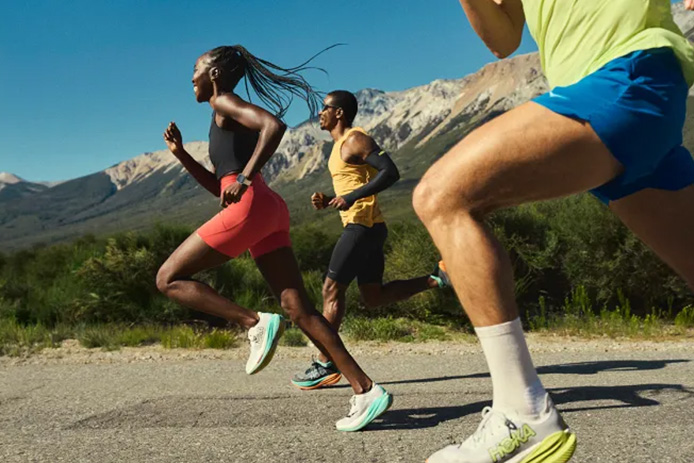Running Is a Bright Spot as Overall Footwear Sales Slow Down in Q2

The footwear market slowed in the second quarter of 2024, but performance footwear — led by running — saw solid gains.
According to new data from Circana, U.S. footwear industry sales revenue was down 2 percent at $10.2 billion in the second quarter, compared to the same time last year. This data covers wholesale footwear sales and does not include brands’ direct-to-consumer businesses.
Performance footwear was the fastest-growing segment in the market in Q2, with sales up 3 percent year-over-year to $2.0 billion. Within this segment, running shoe sales increased 8 percent in Q2 – with road running leading the way, and trail running and track and field also growing in sales. Soccer, tennis and pickleball, and walking shoes also grew within the performance category.
“I can’t really position it any other way,” Beth Goldstein, footwear and accessories analyst at Circana, said in a statement. “Performance and sport lifestyle sneakers continue to be the winning categories in the footwear market. They are the choice of footwear not only for activity, but for casual and fashion purposes, as well. Comfort and versatility features are also helping athleisure sneakers to gain share, and what’s old is new again – sport-inspired retro is driving growth. We can expect these segments to remain strong during the back-to-school season.”
This data follows Circana’s special report on the running segment in June in tandem with Global Running Day. Running shoes — one of the hottest categories in the U.S. footwear market in 2024 — is a $7.1 billion business, with the women’s segment growing even faster than men’s and has almost caught up to its size in the past 12 months, the retail analytics firm said last month.
Indeed, running shoe sales have grown by $1.3 billion in the past three years, Circana noted, with running footwear dollar sales increasing by 12 percent in the 12 months ending April 2024.
As for how the rest of the footwear market performed in the second quarter of 2024, results were mixed. In the athleisure space, Circana noted that sport-inspired fashion continues to drive interest in key items across the basketball, soccer, cross training, tennis, and running-inspired categories. Overall, the leisure footwear segment remains unchanged from Q2 2023, with sales totaling $4.5 billion in the period.
When it comes to fashion styles, however, the market is less enthused, with sales in the quarter falling 7 percent to $3.7 billion. In women’s fashion, seasonless shoe options are outperforming seasonal categories, with mules, clogs, flats, and ballerinas all showing growth.
Interestingly, the more seasonal sandal saw sales decline 8 percent in the period. According to Goldstein, the decline in sandal sales has been a trend for almost two years. “Consumers are gravitating to more versatile and seasonless options like sneakers and select shoe silhouettes,” Goldstein told FN. “Also the popularity of sneakers as fashion in general is coming at the expense of other categories.”
“That’s not to say there aren’t any winners within sandals – despite the overall category being down 8 percent, some casual and comfortable options such as slides (driven by key comfort and active brands), and flip flops outperformed the market,” Goldstein added.
